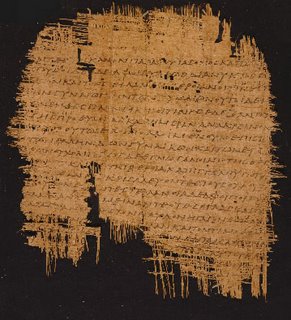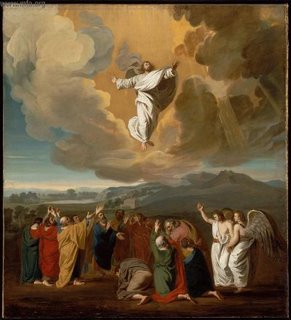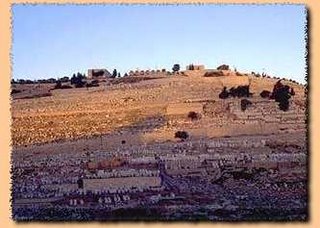
I am praying about teaching a Sunday School class on Church History, beginning with Acts.
"The Acts of the Apostles" is the name given since at least the middle of the second century to the second volume of Luke's two volume history of Christian origins. Originally the two works would have circulated together, but as soon as the four Gospels were gathered into a single unit, the two volumes of this single work were divided and took separate places in the Canon of Holy Scripture. This is, in other words, volume 2 of a two-volume history, with the Gospel of Luke the first volume.
There has almost never been any doubt that the author of Acts is also the author of the third gospel. Luke 1:3-4 says "It seemed good to me also, having followed all things closely for some time past, to write an orderly account for you, most excellent Theophilus, that you may have certainty concerning the things you have been taught."
1 In the first book, O Theophilus, I have dealt with all that Jesus began to do and teach, 2 until the day when he was taken up, after he had given commands through the Holy Spirit to the apostles whom he had chosen.
The name Theophilus is a combination of two Greek words. It means "beloved of God" or "friend of God." Little is known about him. Second-century sources indicate he was a wealthy, influential official in Antioch. Luke may have also been from Antioch, which would explain how the two men got to know each other. Theophilus was a Roman citizen who was a believer. He may have been a high-ranking Roman official because Luke referred to him as "most excellent Theophilus" (Luke 1:3). The term excellent is also used by Luke in reference to Felix and Festus, who were Roman governors (Acts 23:26, 26:25).
“But now consider the benevolent and Apostolic feelings of the writer: that for the sake of a single individual he took such pains as to write for him an entire Gospel. “That thou mightest have,” he says, “the certainty of those things, wherein thou hast been instructed.” John Chrysostom, Homily on Acts 1.
Some writers pointed out that the scroll for Acts is some 25 feet in length! It cost Luke to write these books, not only time, but also financial resources. What is God asking of us today?
Acts begins with a prologue in which Luke says that he told us in his first volume "all that Jesus began to do and teach." Acts is intended to tell us what Jesus continued to do and teach after his ascension to heaven, but now through his witnesses. We are to continue the work of evangelism and teaching that Jesus began.
Verse 2: And we are to utilize the same power that Jesus did, namely "through the Holy Spirit". Any work that we try to do or teach without the Holy Spirit is not His work.
F.F. Bruce said "The extension of the good news in the power of the Spirit is the theme of Acts."
"the apostles whom he had chosen" Jesus chose His own missionaries, taught them, and commissioned them with certain responsibilities. The same is true of all Christians: we are chosen by Christ. John 15:16.
3 To them he presented himself alive after his suffering by many proofs, appearing to them during forty days and speaking about the kingdom of God. 4 And while staying with them he ordered them not to depart from Jerusalem, but to wait for the promise of the Father, which, he said, "you heard from me; 5 for John baptized with water, but you will be baptized with the Holy Spirit not many days from now."
Verse 3: "To them he presented himself alive" – Jesus is ALIVE! He proved it! The Greek word for "proof" here is a word that includes the idea of being convincing – infallible. No other religion in the world can claim anything like this! Not to unbelievers did Jesus spend his time, but His chosen ones. It is they, in turn, that will do His work.
Appeared to them during 40 days. NT accounts of Jesus' appearances make clear that Jesus was not continually visible to the apostles during the forty days, but appeared to them on various occasions. 1 Cor 15: 5-7. Some writer make a point that during the flood it rained for forty days; Moses was on the mountain forty days; and Jesus fasted forty days. Could 40 days be signifigant in some way?
"speaking about the kingdom of God": A constant theme of Jesus' teaching. See, for example, Luke 4:43; 8:1; 9:11. It also a theme of the first missionaries, the Seventy, in Luke 10:1-9. As it should be with us also, preaching the coming kingdom!
Verse 4: "Stay in Jerusalem". The word, "staying" has a marginal reference which gives eating as the actual Greek word used. "He ate with us," says Luke, and those who were there saw him eat. (Acts 10:41)
The disciples, many of whom were from Galilee, would otherwise perhaps have returned to Galilee, but Jerusalem was to be the place of the Spirit's descent. Jesus orders them to stay in Jerusalem. “Don’t start ministering until you have the power to do so.”
What was the "promise of the Father" that He had told them about? The gift of the Holy Spirit. Jesus told the apostles they would receive the Holy Spirit after He left them (Luke 24:44-49, John 14:16, 26; 15:26; 16:7; 20:22).
“Just as when soldiers are to charge a multitude, no one thinks of letting them issue forth until they have armed themselves, or as horses are not suffered to start from the barriers until they have got their charioteer; .. Nor was this the only reason, but also there were many in Jerusalem who should believe.. For when those even who had crucified Him appear as believers, clearly this proved both the fact of the crucifixion and the iniquity of the deed, and afforded a mighty evidence of the Resurrection.” John Chrysostom, Homily on Acts 1
Verse 5: For John the Baptizer's prediction that the Messiah would baptise people with the Holy Spirit, see Mark 1:8; Matthew 3:11; Luke 3:16; John 1:33.
"Not many days from now": The apostles had been with Jesus 40 days, and they would have to wait another 10 days before the Holy Spirit fell, hence, 50 days from Resurrection to Pentecost.
“But why had the Holy Ghost not yet come? It was fit that they should first be brought to have a longing desire for that event, and so receive the grace. For this reason Christ Himself departed, and then the Spirit descended. For had He Himself been there, they would not have expected the Spirit so earnestly as they did. On this account neither did He come immediately after Christ’s Ascension, but after eight or nine days. It is the same with us also; for our desires towards God are then most raised, when we stand in need.” John Chrysostom, Homily on Acts1
6 So when they had come together, they asked him, "Lord, will you at this time restore the kingdom to Israel?" 7 He said to them, "It is not for you to know times or seasons that the Father has fixed by his own authority. 8 But you will receive power when the Holy Spirit has come upon you, and you will be my witnesses in Jerusalem and in all Judea and Samaria, and to the end of the earth."
Verse 6: When Christ taught the apostles about the kingdom after His resurrection, they thought perhaps now He would begin His reign. Old Testament prophecy gave no indication that there would be a long period of time between the first and second coming of Christ. The apostles were probably familiar with Ezekiel 36 and Joel 2, which say that the kingdom will come when the Holy Spirit is poured out. When they heard Christ say the Holy Spirit would come soon (v. 5), they thought He was about to set up His kingdom on earth. . Notice that they do not ask, “When?”, as they had before, but the question is “At this time..?” . Prophecies are found in Jeremiah 33:7; Psalms 14:7; 85:1; Hosea 6:11. Did they also have hopes of having great positions of authority in the reign of the Messiah, as before? Luke 22:24-29.
Remember that Israel at this time could be considered a "Roman occupied territory".
Verse 7: Jesus answered the disciples' question about the time of the kingdom's coming, He didn't tell them there would be no kingdom. He simply said that the time of the kingdom's coming was not for them to know. If there were no literal kingdom planned for the future, Christ would have said so in Acts 1:7. It is not for us to know when the Lord will return, for no man knows the day or the hour(Matt 24:36, 25:13, Mar 13:32).
Verse 8: "But you will receive power when the Holy Spirit comes upon you" see vs 4&5. They are presently powerless. That powerlessness was manifested at the arrest of Jesus. He was arrested and all of the disciples fled into the night. They ran like frightened sheep. But there will be a change. They will receive power - the Greek word is dunamis. This is the word from which derives our English words "dynamite", "dynamic" and "dynamo." It is more than mere authority. It the power of ability.
"you will be my witnesses": Their task will not be speculation about the end, but filling up the time that does remain with bearing witness to Christ throughout the world. A witness is simply someone who tells what he knows, what he himself has seen and heard. For the apostles as witnesses, see also Luke 24:46-48; Acts 1:22; 2:32.
"Jerusalem, Judea, Samaria, and to the ends of the earth" is something of an outline of the book of Acts. Chapters 1-7 = "in Jerusalem"; 8:1-11:18 = "Judea and Samaria"; and the rest of the book, "to the ends of the earth." The Holy Spirit was given for this reason: to empower the apostles to be Christ's witnesses in Jerusalem, and then on to the ends of the earth.

9 And when he had said these things, as they were looking on, he was lifted up, and a cloud took him out of their sight. 10 And while they were gazing into heaven as he went, behold, two men stood by them in white robes, 11 and said, "Men of Galilee, why do you stand looking into heaven? This Jesus, who was taken up from you into heaven, will come in the same way as you saw him go into heaven."
Verses 9: For direct verbal echoes, see 2 Kings 2:9-13 (Elijah's ascension). While only Luke tells us the story of the Ascension, there are other possible traces of the tradition of the Ascension in Ephesians 4:8-10; 1 Timothy 3:16; John 20:17. He had given them the instruction they needed, their commission, and told them to await the descent of the Spirit. His work was done and so he left them. Note the quiet removal; no pomp, no ceremony, as would have certainly been the case in a legendary account. Was the cloud the Shekinah glory of the Lord?
Wherefore also we keep the eighth day for rejoicing, in the which also Jesus rose from the dead, and having been manifested ascended into the heavens. Barnabas 15:9
Verse 10: While they strain to look(gazing into heaven) for Jesus, two angels stood by them.
Verse 11 There is almost a reproach in the words of the two angels: "Why are you standing here looking into the sky?" It is a gentle reproach as indicated by the fact that they encourage them with the thought that the Lord will return, just as they saw him leave. Jesus had told them that he was going to ascend(John 6:62, 20:17).
 The Ascension occurred on the Mount of Olives, as we are told in v. 12. He will return to the Mount of Olives, as Zechariah tells us...
The Ascension occurred on the Mount of Olives, as we are told in v. 12. He will return to the Mount of Olives, as Zechariah tells us... “On that day his feet shall stand on the Mount of Olives that lies before Jerusalem on the east, and the Mount of Olives shall be split in two from east to west by a very wide valley, so that one half of the Mount shall move northward, and the other half southward. And you shall flee to the valley of my mountains, for the valley of the mountains shall reach to Azal. And you shall flee as you fled from the earthquake in the days of Uzziah king of Judah. Then the LORD my God will come, and all the holy ones with him.” Zech 14: 4-5(ESV)
The same Christ who ascended into heaven in Acts 1:9 will return the same way. He won't be different. He will return in the same glorified body that the disciples saw when Christ joined them for breakfast by the Sea of Galilee in John 21:4-14.
And thus was He, with the flesh, received up in their sight unto Him that sent Him, being with that same flesh to come again, accompanied by glory and power. For, say the [holy] oracles, "This same Jesus, who is taken up from you into heaven, shall so come, in like manner as ye have seen Him go unto heaven."But if they say that He will come at the end of the world without a body, how shall those "see Him that pierced Him," and when they recognise Him, "mourn for themselves? "For incorporeal beings have neither form nor figure, nor the aspect of an animal possessed of shape, because their nature is in itself simple. Chapter 3 - The Epistle of Ignatius to the Smyrnaeans
He who suffered "will come again from heaven,"and by all shall He be seen, who rose again from the dead. They too who crucified Him shall see and acknowledge Him; that is to say, His very flesh, against which they spent their fury, and without which it would be impossible for Himself either to exist or to be seen; so that they must blush with shame who affirm that His flesh sits in heaven void of sensation, like a sheath only, Christ being withdrawn from it; as well as those who (maintain) that His flesh and soul are just the same thing, or else that His soul is all that exists, but that His flesh no longer lives. Chapter 24 On the Flesh of Christ, Tertullian
..the primary Word-flesh and blood, yet purer than ours-who "shall descend in like manner as He ascended into heaven"the same both in substance and form, as the angels affirmed, so as even to be recognised by those who pierced Him. Designated, as He is, "the Mediator between God and man," He keeps in His own self the deposit of the flesh which has been committed to Him by both parties-the pledge and security of its entire perfection. For as "He has given to us the earnest of the Spirit, "so has He received from us the earnest of the flesh, and has carried it with Him into heaven as a pledge of that complete entirety which is one day to be restored to it. Chap 51 - On the Resurrection of the Flesh, Tertullian

He will come again on the clouds of heaven, just as He appeared when He ascended into heaven. Chapter 30, Against Praxeas, Tertullian
Now every one who bears witness to the truth, whether he support it by words or deeds, or in whatever way, may properly be called a witness (martyr); but it has come to be the custom of the brotherhood, since they are struck with admiration of those who have contended to the death for truth and valour, to keep the name of martyr more properly for those who have borne witness to the mystery of godliness by shedding their blood for it. The Saviour gives the name of martyr to every one who bears witness to the truth He declares; thus at the Ascension He says to His disciples:"You shall be my witnesses in Jerusalem and in Judaea and in Samaria and unto the uttermost parts of the earth." II.28, Commentary on the Gospel of John, Origen
This is a confirmation of the Resurrection; for if he was taken up with a body, much rather must He have risen again with a body. John Chrysostom, Homily on Acts 1.
Knowing that Christ will return someday should motivate us to serve Him diligently. Someday we will all appear before the judgment seat of Christ to receive rewards for what we did while on earth (2 Cor. 5:10). Christ said, "Behold, I come quickly, and my reward is with me, to give every man according as his work shall be" (Rev. 22:12). One of the greatest motivators for serving Jesus is that He will reward us for what we have done.
No comments:
Post a Comment